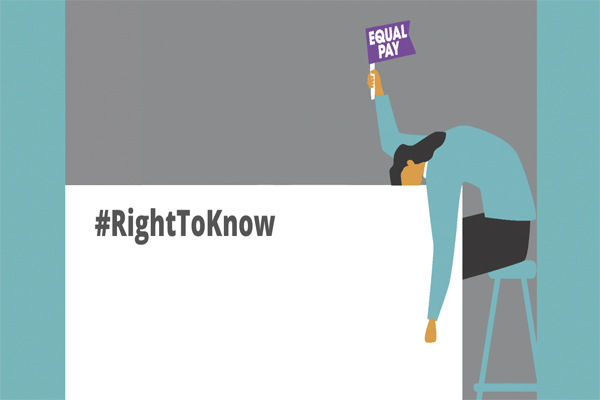The Fawcett Society has announced a new Bill, which would modernise the law on equal pay. The proposals, launched today in Parliament, will give women who suspect they are not getting equal pay, the ‘Right to Know’ what a male ‘comparator’ is paid. This would give women the opportunity to resolve equal pay issues without having to go to court, according to the women’s rights charity.
“50 years on from the Equal Pay Act the law designed to address pay discrimination is still poorly understood and too often ignored. Not only are many women still paid less than men for the same job, 4 in 10 don’t even realise they have a right to equal pay for work of equal value,” stated Fawcett Society’s Chief Executive Sam Smethers. “The culture of secrecy that discourages women from talking about salaries has allowed pay discrimination to persist. Women do not have the information they need to challenge this injustice.”
The new Equal Pay Bill would give women who are not being paid equally a route to get the information they need, according to Smethers. “Our research shows that 8 in 10 men and women support women being able to find out if they are paid less than a man for equal work. It’s time we gave all women the Right to Know,” she said.

UNFIT FOR PURPOSE
The charity also published new data to demonstrate why equal pay law in the UK is not fit for purpose. A shocking number of people are unaware of women’s right to equal pay for work of equal value or that women have a right to discuss salaries if they suspect they are experiencing pay discrimination.
The new data reveals that 40% do not know that women have a right to equal pay for work of equal value. Only one-third of people know women have a legal right to ask male colleagues about their salary if they suspect pay discrimination. However, 46% of men would probably tell a female colleague how much they earned if she asked, and 34% are more likely to share their salary with a female colleague who suspected she was being paid unequally. But people rarely talk about what they earn with colleagues at work. In fact, only 24% reported that salaries are discussed openly in their workplace.

Image credit: Gerd Altmann, Pixabay
MAKING EQUAL PAY A REALITY
The charity’s findings reveal that women often feel uncomfortable talking about salaries to those they work with. In fact, 52% of women would be embarrassed to ask their male colleagues how much they earn. The Right to Know would overcome this by ensuring women can get information from their employer about equal pay if they suspect pay discrimination rather than having to rely on personal, closed door conversations with colleagues, according to the Fawcett Society.
Baroness Margaret Prosser, who has laid the Bill in the House of Lords, added: “Having seen the working women’s campaign for equal pay lead to victory with the Equal Pay Act 1970, I wouldn’t have dreamt that, in 2020, women would still be facing pay discrimination. But that is indeed what is still happening across the country, including at major institutions like the BBC, our councils and supermarkets.
“This new Bill is vital for stopping pay discrimination – so that we are not still talking about this in another fifty years. Current rights just don’t work without transparency. I call on Parliamentarians in both Houses to support the proposals in this Bill – it’s time to make the right to equal pay a reality for all women.”
THE BENEFITS
Fawcett’s Equal Pay Bill 2020 would also:
- · Improve transparency by extending gender pay gap reporting to companies with 100 or more employees.
- · Introduce gender pay gap reporting by ethnicity.
- · Require employers to publish an action plan to tackle gender pay gaps.
- · Require employers to tell employees about their right to equal pay from the beginning of their contract.
- · Update pay discrimination law by giving women back their lost pension rights when they win a case, as well as injury to feelings compensation.
- · Make sure that women can overcome complex corporate structures by writing in to UK law provisions for holding a single source accountable for pay discrimination. At present, European Union law underpins this, but this is at risk after Brexit.





































